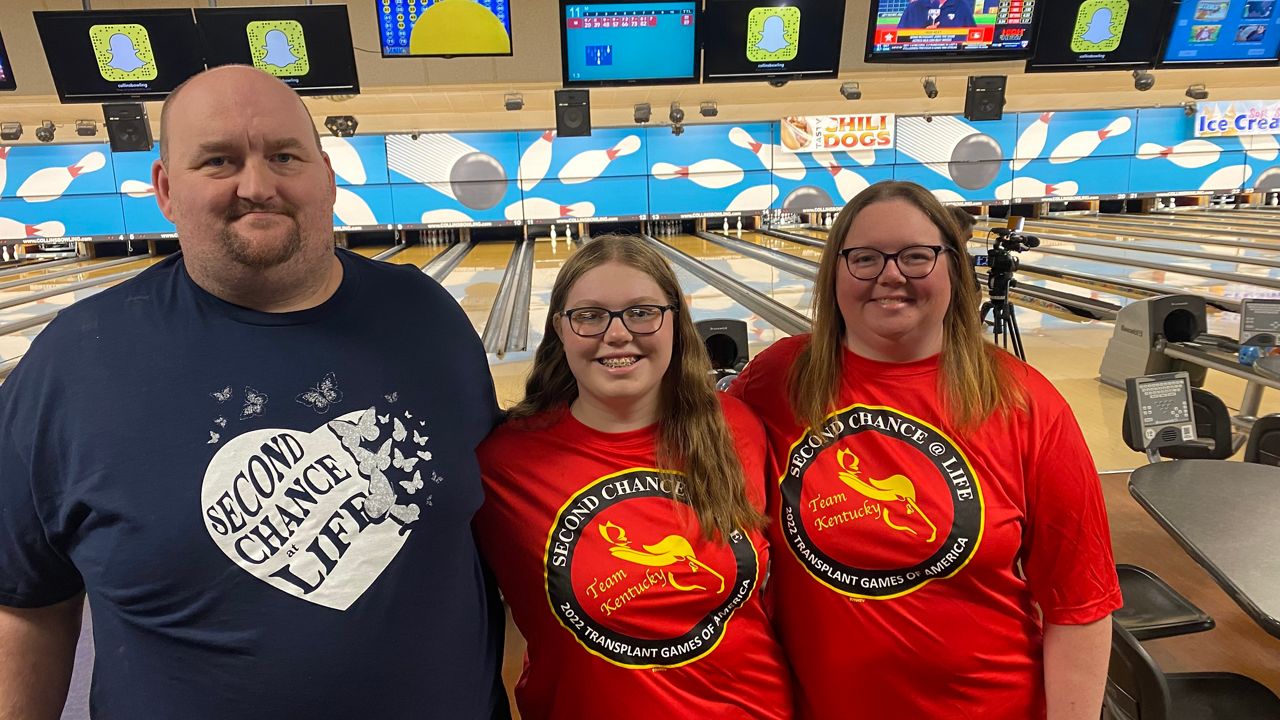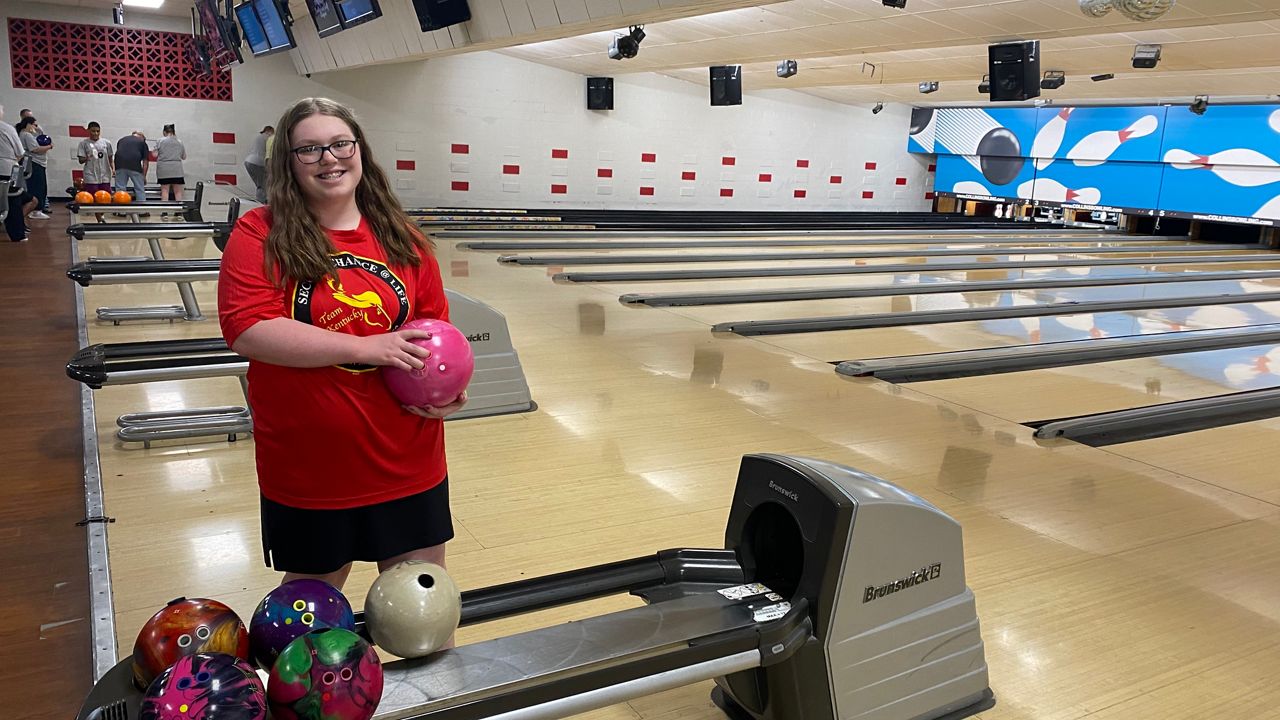LEXINGTON, Ky. — When she was three months old, Maddie Blankenship had some blood drawn, and the hole made by the needle simply would not stop bleeding. After a litany of tests, it was determined her liver was failing, but the reason was never diagnosed. “I actually do not know why my liver was failing to this day,” Blankenship said. “Nobody knows.”
What You Need To Know
- Maddie Blankenship's liver starting failing when she was three months old
- She received a transplant from her uncle
- Now 16 years old, she spends time giving back
- She will compete in 2022 Donate Life Transplant Games in San Diego as a bowler
Blankenship is now 16 years old, a junior at Lexington Catholic High School and a participant in the bowling competition of 2022 Donate Life Transplant Games, which takes place in San Diego, Calif., starting July 29. Every two years the Transplant Games of America gathers together thousands of transplant recipients, living donors, donor families, individuals on the waiting list, caregivers, transplant professionals, supporters and spectators for what is deemed the “world’s largest celebration of life.” During the week, 40 state teams and several international teams, comprising transplant recipients and living donors, compete in athletic and recreational competitions.
Blankenship’s competing in the games is a way to pay homage to how lucky she has been and to help others with similar experiences. She said her journey from newborn baby to transplant recipient took several twists and turns.
“I was going through Band-Aid after Band-Aid after Band-Aid and it would not stop bleeding,” she said. “They called the ambulance and took me to Cincinnati, Ohio, and when I got up there on a Saturday, they said I needed a liver transplant by Monday, or I was going to die.”
Her uncle, who is her living donor and a volunteer for Donate Life Kentucky, was a match and donated one-fourth of his liver to Blankenship.
“Everyone in my family came down, and they were getting tested trying to figure out what was going on,” she said. “My uncle came down. He was 19 and got tested, and he had to go back home, because he had a wife and he was working. He was busy.”
When told he was a match, her uncle immediately drove from Prestonsburg, Kentucky to Cincinnati to donate part of his liver to his niece.

Shortly after the transplant, Blankenship’s body began rejecting the liver twice before it eventually took.
“Ever since then, I’ve been perfectly fine,” she said.
She was around 10 years old when she got involved in the Donate Life Transplant Games.
“I reached out to them and I thought it seemed like something that would be fun,” she said. “I saw flyers for it in my hospital. We reached out to the lady who runs it in Kentucky and she said they are always looking for new members to join. The first one I went to was in Columbus, Ohio, and I absolutely loved it.”
Participants may choose the event in which they compete, such as track and field, singing competitions and quilt-making, among many others. Blankenship said she was adamant that she wanted to compete in the bowling competition.
“I don’t want to sit,” she said. “I also tried volleyball and basketball and I loved those, too, but I’ve always loved to bowl.”
Qualifying for the national competition in San Diego games is based on fundraising through sponsors. Earning two medals at the nationals qualifies entrants for the world competition.
For now, Blankenship is focused on the nationals. On Tuesday, July 26, she and her mother, Stephanie, along with her grandmother, will embark on the 32-hour, 2,150-mile trip to San Diego. Her father, Ben, is not making the trip because of work obligations.
“We have to drive,” she said. “I cannot fly because of my liver, but I’m excited about it. We’ve lost some of our members along the way, too, so this is kind of like our memorial games for them. We would have competed in New Jersey in 2020, but we didn’t get to because of COVID, and during COVID some of our team members passed away. This year is our memorial to them.”



